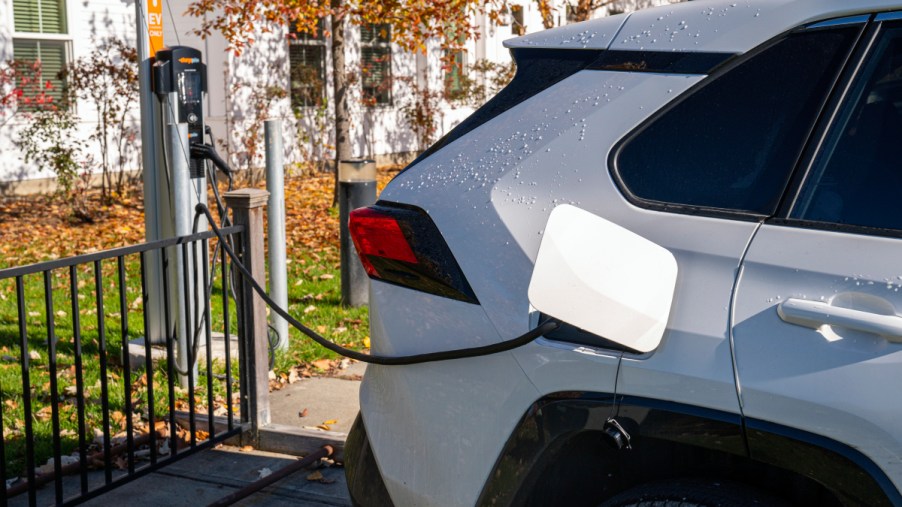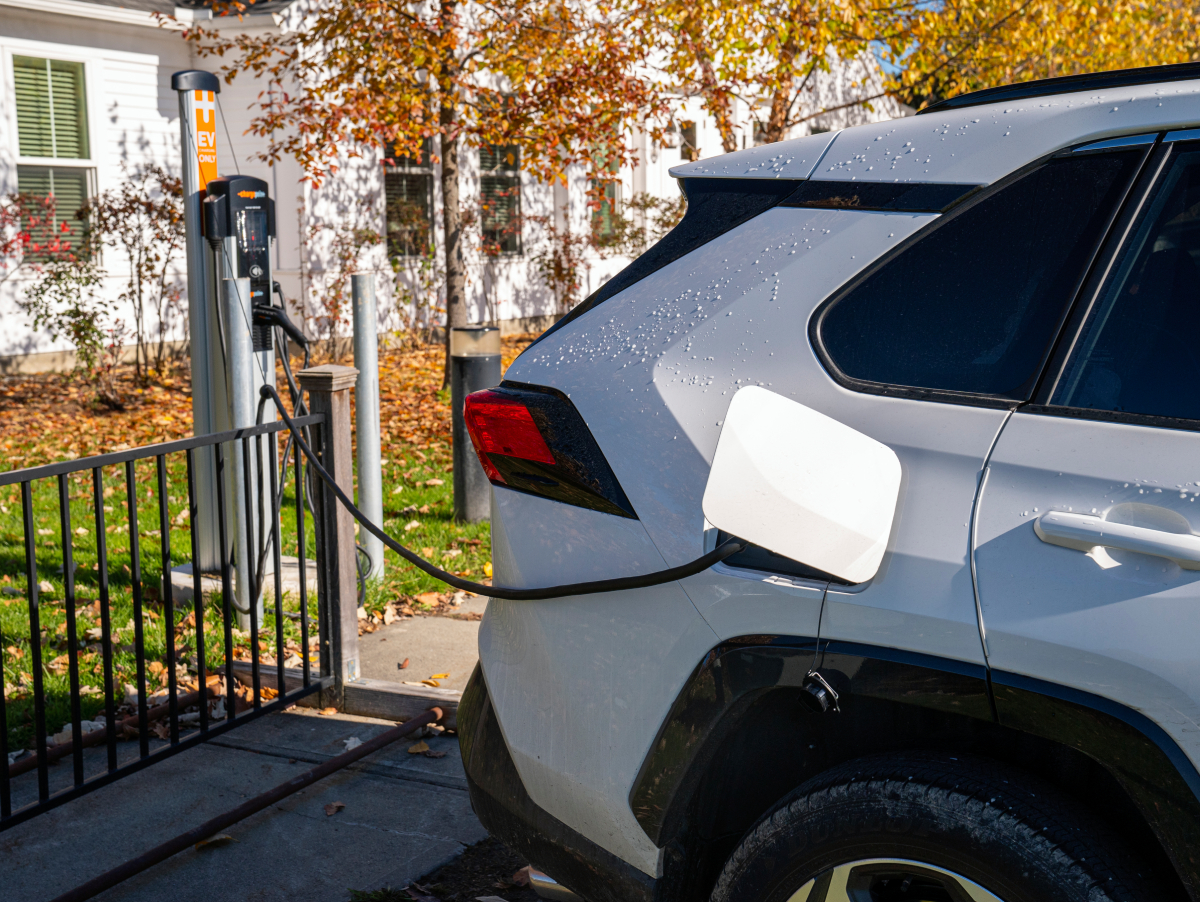
The 4 Most Common Electric Vehicle Charging Questions
Before you hop into your new Tesla or Ford EV, here are some of the most common electric vehicle charging questions. Questions about EV charging stations are common, as are questions about how long it takes to charge an electric car.
Can you plug an electric vehicle into a regular outlet?

The good news is that all electric vehicles come with a charging cable these days. This charging cable can plug into any regular outlet to get a charge, albeit a slow one. If you elect to buy an EV, you should know that many people install a home charger to make the process more streamlined. While you can plug into any standard outlet, it takes a long time to charge an EV this way. You might want to check out EV charging station locations nearby for convenience.
One of the most common electric vehicle charging solutions is to plug in the EV overnight. Using a regular outlet, you might get a full charge in that time. Using a home EV charger, you can choose to schedule charging for when electricity is least expensive.
How much electricity does it take to charge an electric vehicle?
According to the U.S. Department of Energy Alternative Fuels Data Center, the fuel efficiency for an electric vehicle is usually measured in kilowatt-hours (kWh) per 100 miles. A kilowatt-hour is the equivalent of how much energy you might need to run the EV. So if one kilowatt-hour of electricity costs $0.13 per kWh and the vehicle uses 33 kWh to travel 100 miles, the cost per mile comes out to $0.04.
The cost of electricity varies from place to place and the time of day. That’s when the home charging scheduling comes in extra handy.
How long does it take to charge an electric car at a charging station?
To know how long it will take to charge your electric vehicle, you have to know what kind of EV charging station you are at. ChargePoint says a Level 1 charger that you can plug into a regular outlet can take 14 to 16 hours to get up to 80% charged.
| Level 1 | Overnight stops | 14-16 hours |
| Level 2 | Extended stops | 3-5 hours |
| DC Fast Charging | Quick stops | 20-30 minutes |
Some areas aim for convenience over speed, like shopping malls and parks. Colorado is working on installing chargers in all of its state parks thanks to a partnership with Rivian. These are Rivian Waypoints Level 2 electric vehicle charging stations which offer slower charging so people can get out and enjoy the parks for a few hours. When you come back from your adventure, expect the addition of a few miles. This can take three to four hours, depending on a few factors.
In contrast, a DC Fast Charging station is meant to get you in and out. With 20 to 30 minutes plugged in, most EVs will be able to charge up to 80%. Tesla Superchargers offer the same length of charging and are usually located in major cities or off major highways.
How long does it take to charge an electric car at home?
The time of charging an electric car at home depends on what kind of charger you are using. A Level 1 charger will be the same as plugging into a standard outlet. This can take between 14 and 16 hours to get a full charge.
Most electric vehicles will just need a quick charge if you have a Level 2 charger installed at home. Anywhere from three to five hours will get your EV up to 80% SoC. One of the added benefits to this is that home chargers usually come with an app. The app lets you schedule those three to five hours of charging during the night when electricity is the cheapest.
There are a variety of solutions to the electric vehicle charging problem. Depending on your current situation and where you are located, you might be able to charge in a few locations. Otherwise, it is worth checking out a home charger. You might be able to get a tax rebate for the installation, too.



